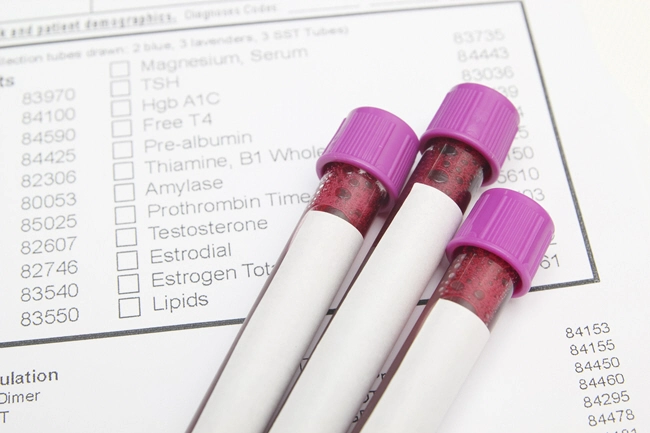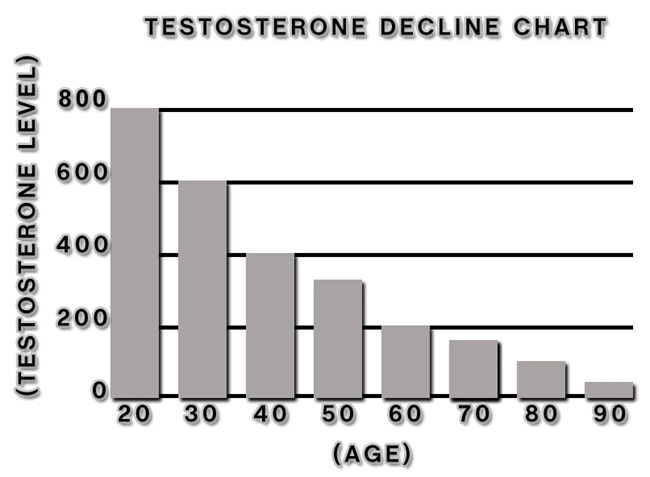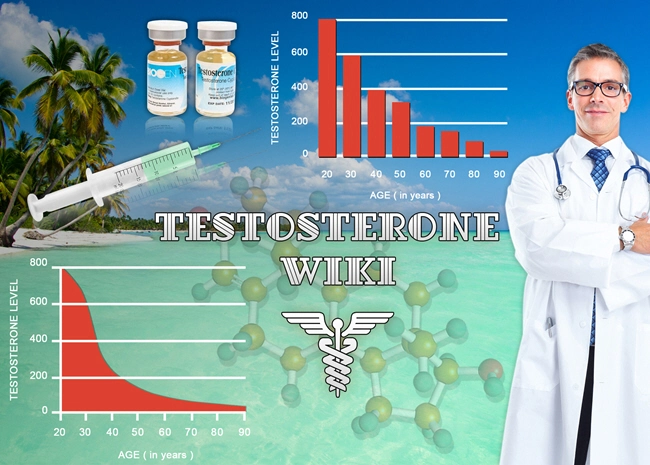
Here is a look at the benefits, the risks, and the types of treatments
Every hormone in the human body is vital. In order to reach and maintain optimal health, each and every hormone must be in balance...and this is especially true for men and testosterone.
Also referred to as “the manly hormone”, testosterone plays a crucial role in virtually all aspects of a man’s health:
- Boosting strength and muscle mass. Testosterone is responsible for regulating muscle mass in men. Several studies suggest that testosterone increases
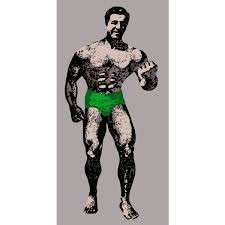 protein synthesis resulting in increased muscle mass. Thus, combining testosterone treatment with strength training exercises may improve muscle strength.
protein synthesis resulting in increased muscle mass. Thus, combining testosterone treatment with strength training exercises may improve muscle strength. - Fertility, and a roaring libido. Low testosterone levels (aka “Low-T”) decrease a man’s desire to have sex and negatively affect his sexual performance. Thus, men with higher testosterone have a higher libido than those with low testosterone levels. Several studies published in the International Journal of Clinical Endocrinology suggest that testosterone therapy may improve libido in men with low testosterone levels. However, increasing testosterone in normal men may not affect their sexual function or libido.
- Mental sharpness. Cognitive ability and memory decline with age as testosterone levels decrease. Research into the relationship between testosterone and spatial abilities suggests that men have better spatial abilities than women due to their higher testosterone levels. Other studies indicate low testosterone levels are associated with a higher risk of Alzheimer’s Disease (AD). The same studies suggest low testosterone levels may cause poor cognitive function in older men.
- Producing red blood cells strengthens the entire cardiovascular system. Testosterone regulates the production of red blood cells in the bone marrow. Thus, testosterone deficiency may increase the risk of various cardiovascular events, including heart attack. Research indicates that low testosterone levels increase the risk of death from different cardiovascular conditions. Therefore, treatment may significantly reduce these risks by improving the red blood cell
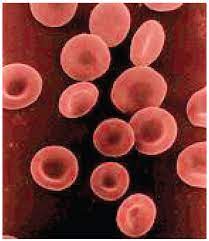 count.
count. - Strong bones. Testosterone is responsible for building and maintaining strong bones in men. Thus, bone density decreases with age due to reduced testosterone levels and increases osteoporosis risk. A review helped determine the effects of testosterone treatment on volumetric bone density in older men with testosterone deficiency. It showed that treatment for one year significantly increased bone density and strength for the participants.
- Weight loss. Testosterone blowtorches ugly, disease-producing fat, which causes the pounds to plummet, and the energy levels to skyrocket. A study was conducted to determine the effect of testosterone therapy on overweight and obese men with testosterone deficiency. The participants reported a significant decrease in waist circumference, BMI, and weight after the treatment. The participants also reported increased energy levels and motivation after the treatment.
- Better sleep. How does testosterone help improve both the quality and quantity of sleep? Good question, and a simple answer. When your body is functioning on all eight cylinders as nature intended, your exploding energy levels make fitness an activity to enjoy, and an energy surplus allows you to
 face life’s challenges head-on and overcome them. The result is a more tranquil mind and an active body that craves a good night’s sleep. These two results make drifting off to dreamland easy.
face life’s challenges head-on and overcome them. The result is a more tranquil mind and an active body that craves a good night’s sleep. These two results make drifting off to dreamland easy. - Wards off depression. Low testosterone is often associated with low mood, mental fatigue, anxiety, and depression. Simply put, it can affect your quality of life. There’s research to determine the effect of testosterone treatment on mood and overall wellbeing in men with erectile dysfunction and low testosterone levels. The researchers performed a randomized trial on 140 participants. Some participants received sildenafil alone, while the rest received sildenafil combined with testosterone gel for 14 weeks. Researchers evaluated the psychological wellness and mood of the participants at the end of the treatment period. The results indicated improved mood and overall wellbeing in the testosterone therapy participants.
There are more benefits that adequate levels of testosterone deliver. But for every man, there is a dark cloud looming on the horizon.
The Decline of Testosterone
Testosterone production in men reaches its peak around the mid-to-late 20s, and then begins a slow, almost imperceptible downward march. Studies have shown that testosterone levels in men decline by approximately 1% annually yearly or 10% per decade.
The American Association of Urology defines normal testosterone levels as 300 nanograms per deciliter (ng/dl). By that metric, men with testosterone levels below 300 ng/dl may suffer from one or many of these symptoms:
- Decreased muscle mass and a loss of strength
- Fatigue
- Erectile dysfunction and a loss of libido
- Insomnia
- Depression and moodiness
- Mental fog
- Weight gain and an accumulation of fat, especially around the mid-section
- Increasing aches and pains
- And more...enough to add up to a steep decline in the quality of life
If you are a middle-aged man, and you are experiencing any or all of these symptoms, it is time to seriously consider TRT. Let’s take a look at how our clinics determine if you are suffering from Low-T and if you are a candidate for TRT. We will also cover the types of therapies that are available, and the possible risks so you will be in a position to make a well-informed decision concerning TRT.
We will begin with a blood test. If your blood testosterone levels are below 300 ng/dl, and if you are coping with the symptoms of low T we will proceed to the next steps. We will take a detailed medical history to determine if there are any reasons like genetics, illnesses, recent surgeries, brain trauma, or accidents that may inhibit the effectiveness of our treatments.
may inhibit the effectiveness of our treatments.
Our next step is an additional blood test where we will be looking at Luteinizing Hormone levels, Prolactin levels, Blood Hemoglobin, Follicle Stimulating Hormone levels, HbA1c, estradiol levels, bone density, and a pituitary gland MRI. These tests will give us a clear picture of how to proceed with your hormone replacement treatment.
Next, we will explain the treatment options available. Here is a brief look at them,
The Types of Testosterone Therapies
- Testosterone Injections. Injections are safe and relatively painless when you follow our guidance. These injections can be done in the privacy of your home. We will give you detailed instructions on how to inject testosterone.
- Testosterone Gels. Many of our clients prefer to apply testosterone gels directly on the skin. The problem with gels is that they can be transferred to another person, so we emphasize that you must wash your hands after each application and be aware of anyone coming in close proximity.
- Testosterone Pellets. Another method of Testosterone Replacement Therapy is implanting tiny pellets under the skin. The pellets contain crystallized testosterone to deliver a steady and concise dosage over time. The advantages of pellets are convenience and longevity. The pellets are implanted by our doctors by making a small incision near the buttocks or hips, and the testosterone is released in a slow, steady, and precise dosage over a several-month time period. The procedure is quick, painless, and simple, and will not irritate your skin as a gel might.
- Oral Testosterone Pills. Another option for TRT administration is oral testosterone pills. For instance, JATENZO is a prescription pill consisting of testosterone undecanoate. The Food and Drug Administration (FDA) has approved it for treating men with male hypogonadism due to underlying medical conditions. However, the FDA does not recommend JATENZO for treating men with age-related low testosterone levels. However, there is an oral alternative. Striant is an implantable tablet placed under the upper gum to deliver testosterone into the bloodstream. This method of oral delivery is easier on the liver.
- Testosterone Patches. Testosterone treatments also come in transdermal patches that deliver a specified dosage through the skin into the system to attain adequate testosterone levels. The patches may be applied to several different areas of the body and release testosterone for around 24 hours.
We discuss in detail each and every one of these methods and determine which one will work best for you.
The Risks of Testosterone Replacement Therapy
No medical treatment is completely without the risk of side effects. Here are some of the possible complications of TRT:
- Skin irritation at the injection area or from the application of testosterone gel
- Benign Prostatic Hyperplasia. Also known as prostate enlargement, Benign Prostatic Hyperplasia (BPH) is a frequent development in older men that happens as the prostate gland cells multiply, causing the gland to enlarge and making urinating difficult. Several studies have concluded that restoring testosterone to normal levels may actually lower BPH risk. But the FDA cautions that testosterone replacement therapy might increase or worsen the symptoms of Benign Prostatic Hyperplasia.
- Prostate cancer. It is a fact that older men are prone to the development of prostate cancer. The question is what effect, if any, does testosterone cause the development and acceleration of cancer, or does TRT offer protection from the hideous affliction? The link between testosterone and prostate cancer
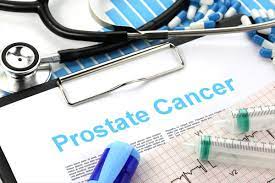 began way back in a 1941 study by Dr. Charles B. Huggins, the man who started using hormone therapy to treat prostate cancer and concluded that his treatments made things worse. However, other research has determined that the Huggins study was flawed and that far from causing prostate cancer, TRT offers a degree of protection from it. As with so many medical issues, more research is needed.
began way back in a 1941 study by Dr. Charles B. Huggins, the man who started using hormone therapy to treat prostate cancer and concluded that his treatments made things worse. However, other research has determined that the Huggins study was flawed and that far from causing prostate cancer, TRT offers a degree of protection from it. As with so many medical issues, more research is needed. - Sleep Apnea. This is only an issue if you are already suffering from sleep apnea. If that is the case we will address that issue before proceeding with TRT.
- Cardiovascular problems. Earlier we mentioned that producing more red blood cells strengthens the cardiovascular system. However, there can be “too much of a good thing.” Testosterone might cause red blood cell count to skyrocket which causes the blood to thicken excessively, and make the heart unable to pump blood to the critical organs. TRT can on rare occasions cause or exacerbate blood clots.
- Decreased sperm production
- Gynecomastia (swollen breasts in men)
The above risks are why you should not try TRT on your own
Our clinics are staffed with trained, experienced professionals who are acutely aware of these possible risks and side effects. Once we have begun treatment we continually monitor our clients for any possible adverse developments. This monitoring includes blood work and educating our clients on what to expect and how  to recognize the symptoms of side effects.
to recognize the symptoms of side effects.
In addition to continual monitoring, we also develop a treatment regimen that goes beyond TRT. Nutrition, supplements, stress reduction, hydration, physical fitness, and detoxification methods are all a part of our holistic, comprehensive anti-aging and longevity programs.
Contact us for a FREE, no-obligation discussion about the incredible benefits of Testosterone Replacement Therapy!
Contact Us Today For A Free Consultation
Dear Patient,
Once you have completing the above contact form, for security purposes and confirmation, please confirm your information by calling us.
Please call now: 1-800-380-5339.
Welcoming You To Our Clinic, Professor Tom Henderson.

- Our HGH Clinic And Web Site Privacy Policy [Last Updated On: May 23rd, 2019] [Originally Added On: December 14th, 2017]
- Idaho HGH Clinics [Last Updated On: August 26th, 2025] [Originally Added On: March 19th, 2018]
- Injectable HGH Prescriptions In Cheyenne, Wyoming [Last Updated On: April 15th, 2025] [Originally Added On: March 3rd, 2019]
- Injectable HGH Prescriptions In Milwaukee, Wisconsin [Last Updated On: April 19th, 2025] [Originally Added On: March 3rd, 2019]
- Injectable HGH Prescriptions In Madison, Wisconsin [Last Updated On: April 1st, 2025] [Originally Added On: March 3rd, 2019]
- Injectable HGH Prescriptions In Green Bay, Wisconsin [Last Updated On: March 22nd, 2025] [Originally Added On: March 3rd, 2019]
- Injectable HGH Prescriptions In Charleston, West Virginia [Last Updated On: May 17th, 2025] [Originally Added On: March 3rd, 2019]
- Injectable HGH Prescriptions In Vancouver, Washington [Last Updated On: February 18th, 2025] [Originally Added On: March 3rd, 2019]
- Injectable HGH Prescriptions In Tacoma, Washington [Last Updated On: January 16th, 2025] [Originally Added On: March 3rd, 2019]
- Injectable HGH Prescriptions In Spokane, Washington [Last Updated On: April 16th, 2025] [Originally Added On: March 3rd, 2019]
- Injectable HGH Prescriptions In Seattle, Washington [Last Updated On: May 30th, 2025] [Originally Added On: March 3rd, 2019]
- Injectable HGH Prescriptions In Washington D.C [Last Updated On: January 15th, 2025] [Originally Added On: March 3rd, 2019]
- Injectable HGH Prescriptions In Bellevue, Washington [Last Updated On: June 1st, 2025] [Originally Added On: March 3rd, 2019]
- Injectable HGH Prescriptions In Virginia Beach, Virginia [Last Updated On: January 18th, 2025] [Originally Added On: March 3rd, 2019]
- Injectable HGH Prescriptions In Richmond, Virginia [Last Updated On: January 25th, 2025] [Originally Added On: March 3rd, 2019]
- Injectable HGH Prescriptions In Portsmouth, Virginia [Last Updated On: April 10th, 2025] [Originally Added On: March 3rd, 2019]
- Injectable HGH Prescriptions In Norfolk, Virginia [Last Updated On: May 28th, 2025] [Originally Added On: March 3rd, 2019]
- Injectable HGH Prescriptions In Newport News, Virginia [Last Updated On: April 12th, 2025] [Originally Added On: March 3rd, 2019]
- Injectable HGH Prescriptions In Hampton, Virginia [Last Updated On: January 11th, 2025] [Originally Added On: March 3rd, 2019]
- Injectable HGH Prescriptions In Chesapeake, Virginia [Last Updated On: January 9th, 2025] [Originally Added On: March 3rd, 2019]
- Injectable HGH Prescriptions In Arlington, Virginia [Last Updated On: February 6th, 2025] [Originally Added On: March 3rd, 2019]
- Injectable HGH Prescriptions In Alexandria, Virginia [Last Updated On: May 24th, 2025] [Originally Added On: March 3rd, 2019]
- Injectable HGH Prescriptions In Montpelier, Vermont [Last Updated On: April 29th, 2025] [Originally Added On: March 3rd, 2019]
- Injectable HGH Prescriptions In West Valley City, Utah [Last Updated On: April 16th, 2025] [Originally Added On: March 3rd, 2019]
- Injectable HGH Prescriptions In West Jordan, Utah [Last Updated On: March 15th, 2025] [Originally Added On: March 3rd, 2019]
- Injectable HGH Prescriptions In Salt Lake City, Utah [Last Updated On: January 28th, 2025] [Originally Added On: March 3rd, 2019]
- Injectable HGH Prescriptions In Provo, Utah [Last Updated On: May 12th, 2025] [Originally Added On: March 3rd, 2019]
- Injectable HGH Prescriptions In Wichita Falls, Texas [Last Updated On: April 1st, 2025] [Originally Added On: March 3rd, 2019]
- Injectable HGH Prescriptions In Waco, Texas [Last Updated On: March 15th, 2025] [Originally Added On: March 3rd, 2019]
- Injectable HGH Prescriptions In San Antonio, Texas [Last Updated On: February 4th, 2025] [Originally Added On: March 3rd, 2019]
- Injectable HGH Prescriptions In Round Rock, Texas [Last Updated On: December 29th, 2024] [Originally Added On: March 3rd, 2019]
- Injectable HGH Prescriptions In Richardson, Texas [Last Updated On: March 10th, 2025] [Originally Added On: March 3rd, 2019]
- Injectable HGH Prescriptions In Plano, Texas [Last Updated On: February 6th, 2025] [Originally Added On: March 3rd, 2019]
- Injectable HGH Prescriptions In Pasadena, Texas [Last Updated On: March 31st, 2025] [Originally Added On: March 3rd, 2019]
- Injectable HGH Prescriptions In Midland, Texas [Last Updated On: April 23rd, 2025] [Originally Added On: March 3rd, 2019]
- Injectable HGH Prescriptions In Mesquite, Texas [Last Updated On: April 9th, 2025] [Originally Added On: March 3rd, 2019]
- Injectable HGH Prescriptions In McKinney, Texas [Last Updated On: May 19th, 2025] [Originally Added On: March 3rd, 2019]
- Injectable HGH Prescriptions In McAllen, Texas [Last Updated On: April 3rd, 2025] [Originally Added On: March 3rd, 2019]
- Injectable HGH Prescriptions In Lubbock, Texas [Last Updated On: May 10th, 2025] [Originally Added On: March 3rd, 2019]
- Injectable HGH Prescriptions In Lewisville, Texas [Last Updated On: January 29th, 2025] [Originally Added On: March 3rd, 2019]
- Injectable HGH Prescriptions In Laredo, Texas [Last Updated On: April 26th, 2025] [Originally Added On: March 3rd, 2019]
- Injectable HGH Prescriptions In Killeen, Texas [Last Updated On: March 4th, 2025] [Originally Added On: March 3rd, 2019]
- Injectable HGH Prescriptions In Irving, Texas [Last Updated On: February 9th, 2025] [Originally Added On: March 3rd, 2019]
- Injectable HGH Prescriptions In Houston, Texas [Last Updated On: April 6th, 2025] [Originally Added On: March 3rd, 2019]
- Injectable HGH Prescriptions In Grand Prairie, Texas [Last Updated On: January 17th, 2025] [Originally Added On: March 3rd, 2019]
- Injectable HGH Prescriptions In Garland, Texas [Last Updated On: February 14th, 2025] [Originally Added On: March 3rd, 2019]
- Injectable HGH Prescriptions In Fort Worth, Texas [Last Updated On: April 21st, 2025] [Originally Added On: March 3rd, 2019]
- Injectable HGH Prescriptions In El Paso, Texas [Last Updated On: February 28th, 2025] [Originally Added On: March 3rd, 2019]
- Injectable HGH Prescriptions In Denton, Texas [Last Updated On: May 6th, 2025] [Originally Added On: March 3rd, 2019]
- Injectable HGH Prescriptions In Dallas, Texas [Last Updated On: December 31st, 2024] [Originally Added On: March 3rd, 2019]
- Injectable HGH Prescriptions In Corpus Christi, Texas [Last Updated On: June 7th, 2025] [Originally Added On: March 3rd, 2019]
- Injectable HGH Prescriptions In Carrollton, Texas [Last Updated On: June 3rd, 2025] [Originally Added On: March 3rd, 2019]
- Injectable HGH Prescriptions In Brownsville, Texas [Last Updated On: February 4th, 2025] [Originally Added On: March 3rd, 2019]
- Injectable HGH Prescriptions In Beaumont, Texas [Last Updated On: April 4th, 2025] [Originally Added On: March 3rd, 2019]
- Injectable HGH Prescriptions In Austin, Texas [Last Updated On: June 5th, 2025] [Originally Added On: March 3rd, 2019]
- Injectable HGH Prescriptions In Arlington, Texas [Last Updated On: January 13th, 2025] [Originally Added On: March 3rd, 2019]
- Injectable HGH Prescriptions In Amarillo, Texas [Last Updated On: March 18th, 2025] [Originally Added On: March 3rd, 2019]
- Injectable HGH Prescriptions In Abilene, Texas [Last Updated On: January 5th, 2025] [Originally Added On: March 3rd, 2019]
- Injectable HGH Prescriptions In Nashville, Tennessee [Last Updated On: March 2nd, 2025] [Originally Added On: March 3rd, 2019]
- Injectable HGH Prescriptions In Murfreesboro, Tennessee [Last Updated On: March 8th, 2025] [Originally Added On: March 3rd, 2019]
- Injectable HGH Prescriptions In Memphis, Tennessee [Last Updated On: March 28th, 2025] [Originally Added On: March 3rd, 2019]
- Injectable HGH Prescriptions In Knoxville, Tennessee [Last Updated On: March 25th, 2025] [Originally Added On: March 3rd, 2019]
- Injectable HGH Prescriptions In Clarksville, Tennessee [Last Updated On: February 2nd, 2025] [Originally Added On: March 3rd, 2019]
- Injectable HGH Prescriptions In Chattanooga, Tennessee [Last Updated On: January 29th, 2025] [Originally Added On: March 3rd, 2019]
- Injectable HGH Prescriptions In Sioux Falls, South Dakota [Last Updated On: December 25th, 2024] [Originally Added On: March 3rd, 2019]
- Injectable HGH Prescriptions In Columbia, South Carolina [Last Updated On: February 2nd, 2025] [Originally Added On: March 3rd, 2019]
- Injectable HGH Prescriptions In Charleston, South Carolina [Last Updated On: January 31st, 2025] [Originally Added On: March 3rd, 2019]
- Injectable HGH Prescriptions In Providence, Rhode Island [Last Updated On: January 30th, 2025] [Originally Added On: March 3rd, 2019]
- Injectable HGH Prescriptions In Pittsburgh, Pennsylvania [Last Updated On: May 18th, 2025] [Originally Added On: March 3rd, 2019]
- Injectable HGH Prescriptions In Erie, Pennsylvania [Last Updated On: January 4th, 2025] [Originally Added On: March 3rd, 2019]
- Injectable HGH Prescriptions In Allentown, Pennsylvania [Last Updated On: May 6th, 2025] [Originally Added On: March 3rd, 2019]
- Injectable HGH Prescriptions In Salem, Oregon [Last Updated On: January 31st, 2025] [Originally Added On: March 3rd, 2019]
- Injectable HGH Prescriptions In Portland, Oregon [Last Updated On: February 1st, 2025] [Originally Added On: March 3rd, 2019]
- Injectable HGH Prescriptions In Gresham, Oregon [Last Updated On: January 30th, 2025] [Originally Added On: March 3rd, 2019]
- Injectable HGH Prescriptions In Eugene, Oregon [Last Updated On: January 27th, 2025] [Originally Added On: March 3rd, 2019]
- Injectable HGH Prescriptions In Tulsa, Oklahoma [Last Updated On: May 26th, 2025] [Originally Added On: March 3rd, 2019]
- Injectable HGH Prescriptions In Oklahoma City, Oklahoma [Last Updated On: February 22nd, 2025] [Originally Added On: March 3rd, 2019]
- Injectable HGH Prescriptions In Norman, Oklahoma [Last Updated On: April 28th, 2025] [Originally Added On: March 3rd, 2019]
- Injectable HGH Prescriptions In Toledo, Ohio [Last Updated On: April 14th, 2025] [Originally Added On: March 3rd, 2019]
- Injectable HGH Prescriptions In Dayton, Ohio [Last Updated On: April 11th, 2025] [Originally Added On: March 3rd, 2019]
